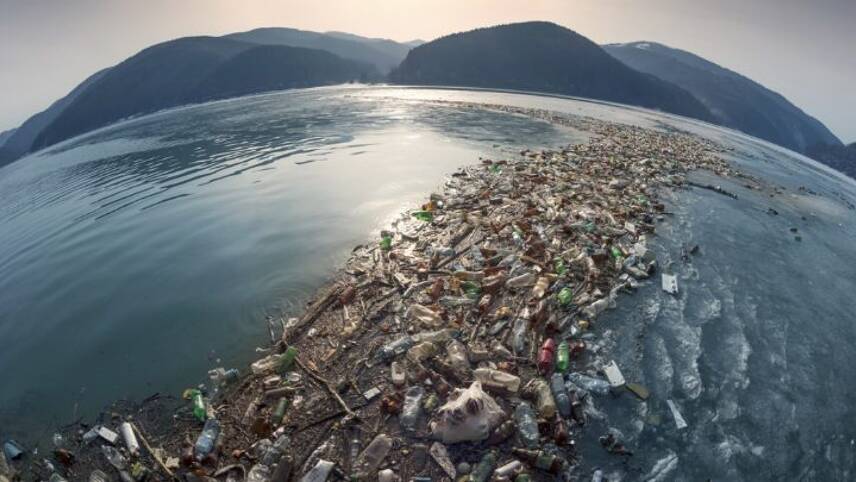Register for free and continue reading
Join our growing army of changemakers and get unlimited access to our premium content

Attendees chose a treaty that will cover the entire lifecycle of plastics
The meeting, known as UNEA 5.2, is coming to a close today (2 March) in Nairobi after more than a week of negotiations between UN member states on topics including nature-based climate solutions, sustainable food systems, green jobs, poverty eradication and preventing pollution.
This latter topic has caught many of the headlines around the meeting, as attendees have been tasked with agreeing the broad terms of a new global treaty to slow – and ultimately end – plastic pollution globally. The treaty covers both terrestrial and marine habitats and applies to plastic pollution of all sizes and all sources, from microplastics from textiles and tyres, to nurdles, to abandoned fishing gear.
UN representatives had stated in the run-up to UNEA 5.2, and throughout the proceedings, that the treaty could well be the most important multilateral global environmental agreement since the Paris Agreement was ratified at COP21 in 2015.
Attendees had put forward two draft versions of the treaty. One, supported by more than 70 nations, including 27 EU member states, included a requirement to reduce plastic production. The other, tabled by Japan and supported by the likes of the US, China, Sri Lanka, Cambodia and Palau, did not include this requirement, placing instead a greater focus on scaling recycling and energy-from-waste.
Ultimately, attendees agreed on a treaty that is most similar to the first version. The UN has stated covers the full lifecycle of plastic, from source to waste management.
UPDATED: A final text has now been published and can be read here.
This decision has been welcomed, given that the UN estimates that plastic production currently stands at 400 million tonnes per year and is set to surpass 800 million tonnes per year without any intervention.
Bravo!! At #UNEA5 we have just gavelled the resolution paving the way for global action to #BeatPlasticPollution. The most important environmental deal since the Paris accord. The work starts now! Huge congratulations to Member States. pic.twitter.com/SyE8aBhMlP
— Inger Andersen (@andersen_inger) March 2, 2022
UNEA secretary-general Inger Anderson said: “As I told negotiators a few days ago, the world is demanding that we act on plastic pollution. They, the negotiators, have delivered the first step in this process by agreeing to establish an Intergovernmental Negotiating Committee (INC) that will forge a global agreement on plastic pollution.
This would have been unthinkable just a few years ago. But today, here in Nairobi, in the only United Nations Headquarters in the developing world, in the environmental capital of the world, you are taking a crucial step to turn the tide on plastic pollution. This is a historic moment. I congratulate everyone involved for bringing us to this point. But a lot of work lies ahead to deal with the sheer scale of plastic pollution.”
The UN is aiming to complete a finalized treaty by 2024. It has promised that the final treaty will be legally binding. By 2024, more information will be provided on how nations report their plastic production, disposal and pollution.
Green groups are urging swift progress, after a recent landmark report from the OECD revealed that global plastic production doubled between 2000 and 2019, with the growth of plastic volumes outpacing economic growth. Within the same timeframe, recycling rates stagnated and the flow of plastics into oceans increased.
Click here to read edie’s roundup of reactions to today’s news.
Click here to read edie’s deep dive explaining everything you need to know about the treaty.
Sarah George


Please login or Register to leave a comment.